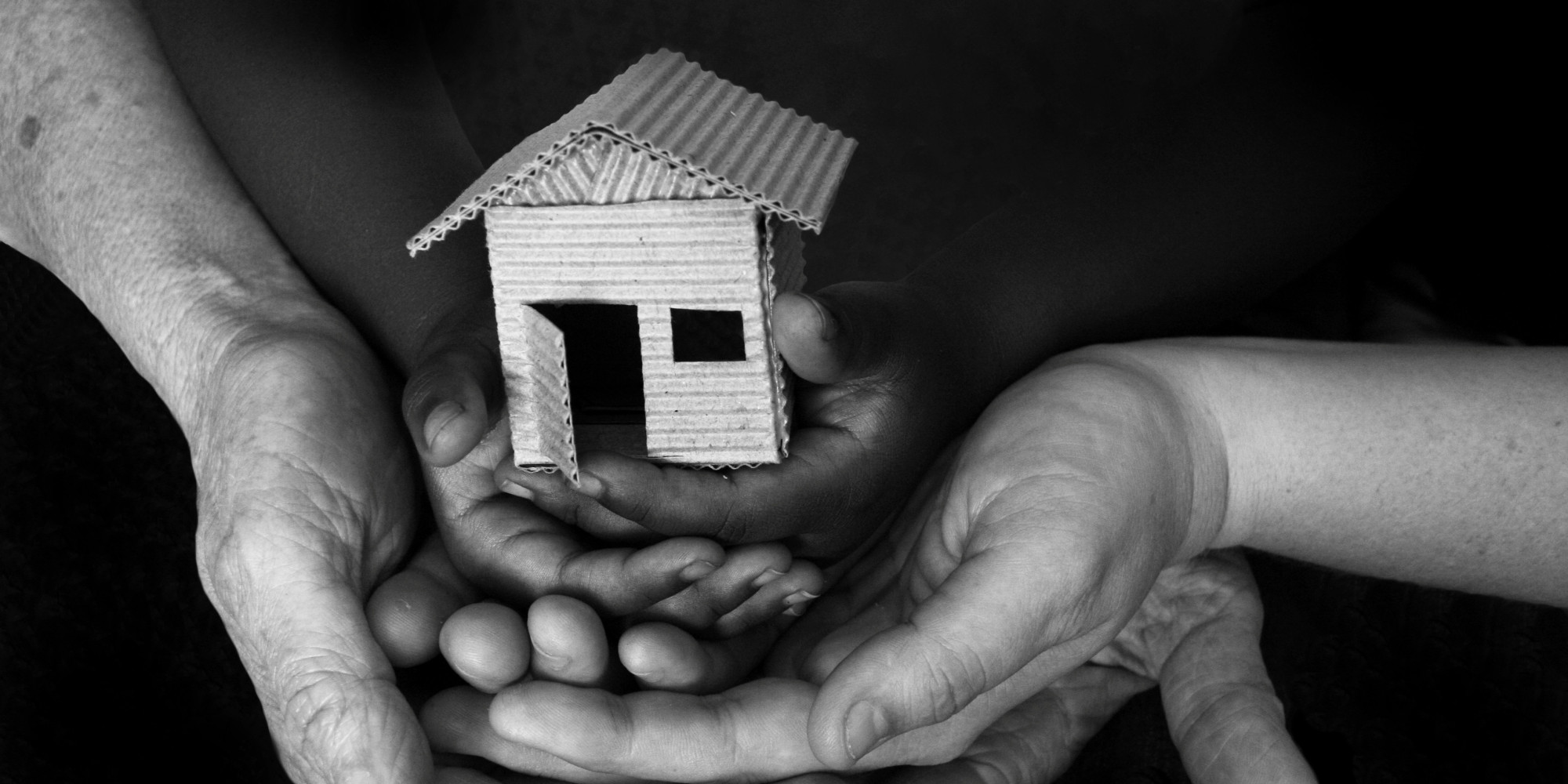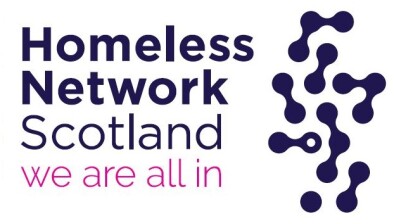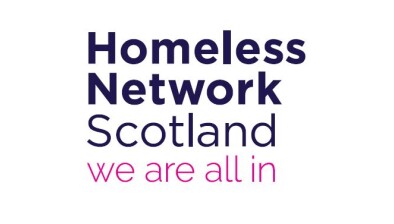Homelessness in Scotland rises by 4% while use of temporary accommodation reaches record high
Charities have called on ministers to “uphold their promises” to homeless people and continue the structural systems change required to end homelessness “at pace” after new statistics revealed the scale of the housing emergency at the beginning of the coronavirus crisis.

Official figures released by the Scottish Government yesterday show that 31,333 households were assessed as homeless between 1 April 2019 and 31 March 2020, an increase of 1,097 (4%) on the previous year. The number of applications for homelessness assistance also increased by 84 to reach 36,855.
As of 31 March 2020, there were 11,665 households in temporary accommodation, a 6% increase on the year before and the highest number on record. This includes 7,280 children, a 7% increase, also the highest number on record.
Households that left temporary accommodation in 2019/20 had spent an average of 184 days (over six months) in temporary accommodation, an increase on 2018/19 when it was 182. Couples with children spent, on average, the longest in temporary accommodation: 263 days, or nearly nine months.
The stats also showed:
- 51% (15,991) households have at least one support need which is a 9% increase from 2018/19. The most common support need identified is mental health (27% of households) but there has been a 17% increase in support needs related to physical disability.
- 2,884 households had slept rough in the last three months prior to their application. This is a 1% decrease from 2018/19.
- 15% of households (4,780) seen in 2019/20 had been homeless previously within the last five years.
As these figures stop at 31 March 2020, they don’t capture the impact of the coronavirus pandemic and lockdown measures.
Some summary information for homeless applications and the use of temporary accommodation during the coronavirus period has been collected by both the Scottish Housing Regulator and by the Scottish Government.
Shelter Scotland said the figures show a household in Scotland becomes homeless every 17 minutes.
It added that other data sources indicate homelessness applications and numbers in temporary accommodation have increased significantly since the end of March amid the pandemic.
Gordon MacRae, Shelter Scotland’s assistant director for communications and advocacy, said: “These figures show that Scotland’s homelessness system was failing people even before the pandemic hit.
“We had rising homelessness and record numbers of people in temporary accommodation before the lockdown. Local authorities were already struggling to cope with the level of housing need. And since then the situation has gotten a lot worse.
“The Scottish Government took swift action in the early days of the pandemic to get rough sleepers off the streets, protect people from eviction and limit the amount of time anyone could spend in unsuitable temporary accommodation. They pledged not to go backwards on homelessness as we emerged from the crisis.
“Now is the time for ministers to uphold their promises to homeless people. Government and local authorities must urgently step up and significantly increase the supply of suitable accommodation.
“Otherwise a short-term success could become a long-term crisis, with more and more people trapped in unsuitable temporary accommodation, or forced back on to the streets.”
The statistics also show a 45% spike in homelessness presentations from people who were previously in supported accommodation.
Mr MacRae added: “We’ll be working with local authorities and government to understand why this was happening to the most vulnerable groups even before the lockdown. We must quickly understand the reasons behind this unprecedented spike.”
Jon Sparkes, chief executive of Crisis, said the figures demonstrate the “urgency of action needed” to prevent any further increase in the numbers of people becoming homeless, even before the economic consequences of the pandemic have their full impact.
He added: “The current public health emergency has reinforced the importance of everyone having a safe home. We’ve seen brilliant action taken by national and local government and their partners during the emergency to protect everyone experiencing homelessness, reflecting Scotland’s commitment to ending homelessness.
“Yet these statistics show homelessness continuing to rise and many people becoming homeless repeatedly. In line with the Homelessness and Rough Sleeping Action Group’s recommendations, it is vital that Scottish Government continues to build on the progress made throughout the pandemic by putting in place measures to prevent people becoming homeless. As part of this, we need all public bodies working together so that no one is left without somewhere safe and secure to call home.”
Despite such a “determined policy environment in Scotland”, Maggie Brunjes, chief of executive of Homeless Network Scotland, said the figures from 2019/20 show there is “still work to do”.
“We know homelessness is not always prevented or responded to quickly enough,” she said.
“The system itself is outdated and too often doesn’t reflect what actually works and what matters. This is changing but change on the ground can be slow and the pandemic has heaped uncertainty onto an already complex problem.
“The causes of homelessness are predictable and most often rooted in disadvantage, which restricts people’s options. The figures also highlight housing supply and housing access issues and increasing the supply of suitable homes for families and individuals is pressing.
“Effective prevention can stop homelessness before it starts and a top-level group is working on how we can get better at this. If someone’s homelessness is not prevented that person should be accommodated quickly in normal, settled housing with the right support – this is the focus of Scotland’s rapid rehousing and Housing First approach.
“The statistics do not include the impact of the COVID-19 pandemic on homelessness: the ‘overnight’ success in lifting people out of rough sleeping, a ban on evictions and urgent measures by charities, councils and government to plan ahead for this winter. Nor do they fully reflect the first year of Scotland’s ground-breaking rapid rehousing plans coming into effect. However, the figures are a reminder that the big, structural systems change needed to end homelessness, which is well underway, must continue at pace.”
Housing minister Kevin Stewart said the figures are a reminder about why the Scottish Government is committed to ending homelessness and rough sleeping and do not reflect the progress made to dramatically reduce the numbers of people sleeping rough during the COVID-19 pandemic.
He added: “Since the start of the crisis, we have provided more than £1.5 million to third sector partners to accommodate those experiencing homelessness in hotels. This builds on our £32.5m investment to support local authorities to prioritise settled accommodation for all. Our priority is now to prevent anyone from ending up back on the streets or in unsuitable temporary accommodation.
“To help us achieve this, the Homelessness and Rough Sleeping Action Group recently made a series of recommendations which we will respond to fully next month. In the interim, our partners have closed night shelters to explore alternative self-contained options for the coming winter, with a view to phasing out such shelters completely in the long term. Additionally, as previously announced, we also intend to extend emergency legislation designed to protect renters from eviction.”
The Scottish Government will outline its official response to the HARSAG recommendations next month.








